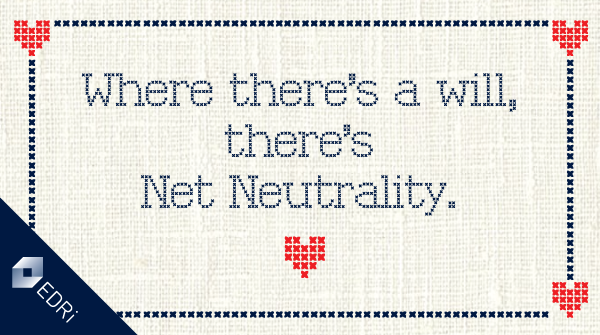Net neutrality overhaul: 5G, zero-rating, parental control, DPI
The Body of European Regulators for Electronic Communications (BEREC) is currently in the process of overhauling their guidelines on the implementation of the Regulation (EU) 2015/2120, which forms the legal basis of the EU’s net neutrality rules. At its most recent plenary, BEREC produced new draft guidelines and opened a public consultation on this draft. The proposed changes to the guidelines seem like a mixed bag

5G network slicing
The new mobile network standard 5G specifies the ability of network operators to provide multiple virtual networks (“slices”) with different quality characteristics over the same network infrastructure, called “network slicing”. Because end-user equipment can be connected to multiple slices at the same time, providers could use the introduction of 5G to create new products where different applications make use of different slices with their associated quality levels. In its draft guidelines, BEREC clarifies that it‘s the user who has to be able to choose which application makes use of which slice. This is a welcome addition.
Zero-rating
Zero-rating is a practice of billing the traffic used by different applications differently, and in particular not deducting the traffic created by certain applications from a user’s available data volume. This pratice has been criticised, because it reduces the choice of consumers regarding which applications they can use, and disadvantages new, small application providers against the big, already established players. These offers broadly come in two types: “open” zero-rating offers, where application providers can apply to become part of the programme and have their application zero-rated, and “closed” offers where that is not the case. The draft outlines specific criteria according to which open offers can be assessed.
Parental control filters
While content- and application-specific pricing is an additional challenge for small content and application providers, content-specific blocking can create even greater problems. Nevertheless, the draft contains new language that creates a carve-out for products such as parental control filters operated by the access provider from the provisions of the Regulation that prohibit such blocking, instead subjecting them to a case-by-case assessment by the regulators (as is the case for zero-rating). The language does not clearly exclude filters that are sold in conjunction with the access product and are on by default, and the rules can even be read as to require users who do not want to be subjected to the filtering to manually reconfigure each of their devices.
Deep Packet Inspection
Additionally, BEREC is also running a consultation on two paragraphs in the guidelines to which it hasn‘t yet proposed any changes. These paragraphs establish important privacy protections for end-users. They prohibit access providers from using Deep Packet Inspection (DPI) when applying traffic management measures in their network and thus protect users from having the content of their communications inspected. However, according to statements made during the debriefing session of the latest BEREC plenary, some actors want to allow providers to look at domain names, which themselves can reveal very sensitive information about the user and require DPI to extract from the data stream.
EDRi member epicenter.works will respond to BEREC’s consultation and encourages other stakeholders to participate. The proposed changes are significant. That is why clearer language is required, and users‘ privacy needs to remain protected. The consultation period ends on 28 November 2019.

epicenter.works
https://epicenter.works/
Public consultation on the document on BEREC Guidelines on the Implementation of the Open Internet Regulation (10.10.2019)
https://berec.europa.eu/eng/news_consultations/ongoing_public_consultations/5947-public-consultation-on-the-document-on-berec-guidelines-on-the-implementation-of-the-open-internet-regulation
Zero rating: Why it is dangerous for our rights and freedoms (22.06.2016)
https://edri.org/zero-rating-why-dangerous-for-our-rights-freedoms/
NGOs and academics warn against Deep Packet Inspection (15.05.2019)
https://edri.org/ngos-and-academics-warn-against-deep-packet-inspection/
Net Neutrality vs. 5G: What to expect from the upcoming EU review? (05.12.2018)
https://edri.org/net-neutrality-vs-5g-what-to-expect-from-the-upcoming-eu-review/
(Contribution by Benedikt Gollatz, EDRi member epicenter.works, Austria)


